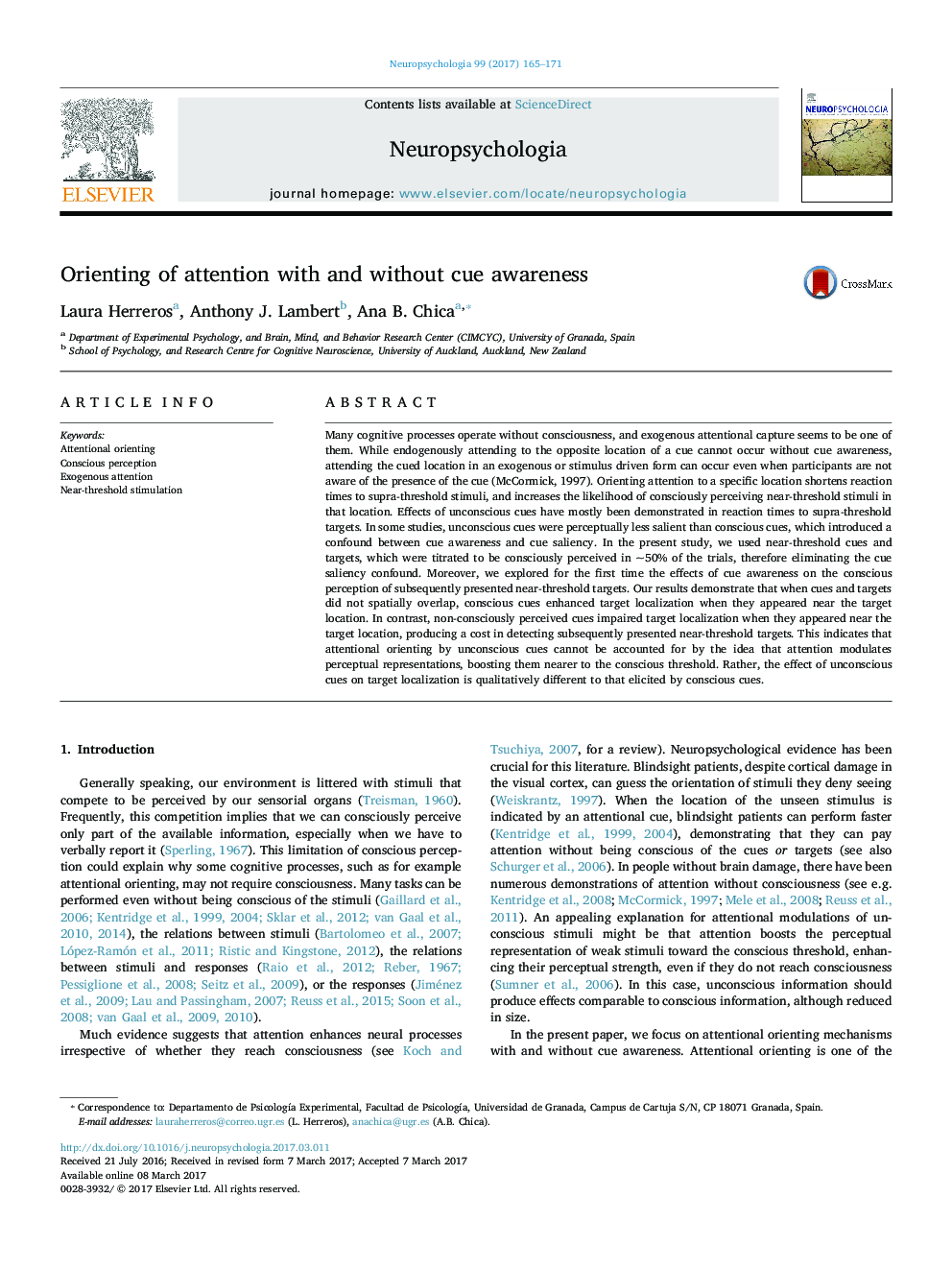| Article ID | Journal | Published Year | Pages | File Type |
|---|---|---|---|---|
| 5045223 | Neuropsychologia | 2017 | 7 Pages |
â¢The effect of cue awareness on the conscious perception of near-threshold targets is explored.â¢Conscious and unconscious cues produce qualitatively different effects on perceptual sensitivity and response criterion.â¢When both cues and targets are near-threshold stimuli participants tend to perceive either both stimuli or none of them.
Many cognitive processes operate without consciousness, and exogenous attentional capture seems to be one of them. While endogenously attending to the opposite location of a cue cannot occur without cue awareness, attending the cued location in an exogenous or stimulus driven form can occur even when participants are not aware of the presence of the cue (McCormick, 1997). Orienting attention to a specific location shortens reaction times to supra-threshold stimuli, and increases the likelihood of consciously perceiving near-threshold stimuli in that location. Effects of unconscious cues have mostly been demonstrated in reaction times to supra-threshold targets. In some studies, unconscious cues were perceptually less salient than conscious cues, which introduced a confound between cue awareness and cue saliency. In the present study, we used near-threshold cues and targets, which were titrated to be consciously perceived in ~50% of the trials, therefore eliminating the cue saliency confound. Moreover, we explored for the first time the effects of cue awareness on the conscious perception of subsequently presented near-threshold targets. Our results demonstrate that when cues and targets did not spatially overlap, conscious cues enhanced target localization when they appeared near the target location. In contrast, non-consciously perceived cues impaired target localization when they appeared near the target location, producing a cost in detecting subsequently presented near-threshold targets. This indicates that attentional orienting by unconscious cues cannot be accounted for by the idea that attention modulates perceptual representations, boosting them nearer to the conscious threshold. Rather, the effect of unconscious cues on target localization is qualitatively different to that elicited by conscious cues.
